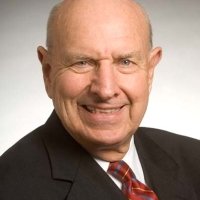Weighing Concerns and Assurances about a Nuclear Deal with Iran
Four experts and specialists on Iran discussed the P5+1 deal regarding Iran’s nuclear program and the emerging arguments for and against a deal.
On June 3, 2015, the Middle East Program at the Woodrow Wilson Center and the Iran Project hosted the event “Weighing Concerns and Assurances about a Nuclear Deal with Iran,” with Gary Samore, Executive Director for Research at the Harvard Kennedy School of Government’s Belfer Center for Science and International Affairs; James Cartwright, Harold Brown Chair in Defense Policy Studies at the Center for Strategic and International Studies; and Jessica Tuchman Mathews, distinguished fellow at the Carnegie Endowment for International Peace. Thomas Pickering, member, the Iran Project, moderated the event. Haleh Esfandiari, Director of the Middle East Program, Woodrow Wilson Center, provided welcoming remarks. William Luers, Director, the Iran Project, provided introductory remarks.
Samore began by explaining how both Iran and the United States have made significant concessions during the nuclear negotiations. He described Supreme Leader Ayatollah Ali Khamenei’s acceptance of significant reductions in the Iranian nuclear program’s development and delays in sanctions relief. Samore asserted that both sides are committed to this agreement and addressing essential measures, such as physical limits for Iran’s enrichment program. He cited several issues in the negotiations, such as the exact timing for sanctions relief including the precise mechanisms and procedures in place in case Iran does not comply with the policies set forth, and determined that the latter is the most significant issue.
Cartwright spoke from a military perspective in the discussion, stating that negotiations are the only viable solution to a nuclear Iran. He emphasized that this is not a military problem nor would military intervention be a solution. If military intervention was necessary, the United States would need to gain control of Iran’s uranium and plutonium fuel cycles as well as perform covert operations.
Mathews discussed the broader issues involved in the negotiations. She explained that some believe the deal is too weak because President Obama and Secretary Kerry have asked more from the Iranians than they have been willing to reciprocate. She noted that some advocate that the United States walk away from the negotiations because they believe a better deal can be achieved this way. Mathews believes it is highly unlikely that the Iranians would negotiate with the United States in the future if they walk away now. She also emphasized the importance of implementation in these terms of the negotiations and ensuring that both Iran and the United States are committed to implementing their respective concessions.
Pickering commented on the sanctions and how they would be lifted only if Iran reduced its stockpile of uranium, moved centrifuges out of nuclear facilities, changed the center of the Arak reactor, and settled matters with the IAEA.
During the question and answer portion of the event, members of the audience asked about Congress’ role in these negotiations, and Mathews explained that the issue of Iran is now enmeshed in the U.S. primary elections and could be used as a political tool. Samore agreed, asserting that the vote on the agreement with Iran would be incredibly close. Esfandiari asked if it was common to ask a country to open its military sites for inspection, noting the request by the P5+1 to Iran to open its sites. Cartwright responded by saying there have been such requests throughout the history of arms control, and Samore articulated his belief that the United States has experience in inspecting military facilities without exposing confidential information and secrets. The speakers agreed that while the United States would relieve Iran of certain sanctions at the conclusion of the negotiations, sanctions enforced for Iran’s human rights abuses and links to terrorism would remain in place.
By Donya Nasser, Middle East Program
Speakers


Hosted By

Middle East Program
The Wilson Center’s Middle East Program serves as a crucial resource for the policymaking community and beyond, providing analyses and research that helps inform US foreign policymaking, stimulates public debate, and expands knowledge about issues in the wider Middle East and North Africa (MENA) region. Read more
